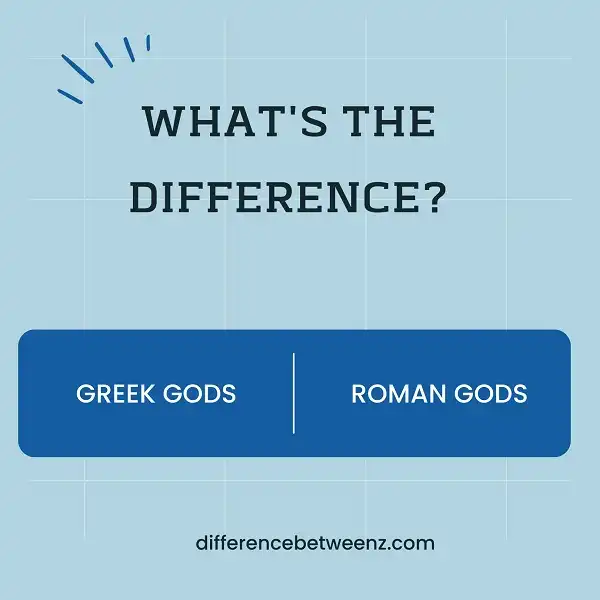Greek Gods vs. Roman Gods
What is difference between Greek and Roman Gods? There have often been confusions as far as ancient mythologies are concerned. Especially between the Greek Gods and the Roman Gods, many people are confused about which culture pertains to each god given the many similarities that exist between the mythologies of both cultures. However, to avoid confusion it is important to note some differences between the myths of these two peoples. Here below this post is all about the difference between Greek and Roman Gods.
Difference between Greek and Roman Gods
Greek culture comes first, about a millennium before Roman. Although later the Romans politically submitted to the Greeks; the culture and the ideals that were adopted correspond to the Hellenes (as the latter are also known). However, the Romans, to give it a touch of uniqueness or individuality; changed the names to the Greek deities and assigned them Roman names, although their characteristics in one culture as in the other were practically similar.
Some names of Gods were preserved the same between the two cultures, as for example “Apollo”; whose name was not modified.
A clear difference occurs in the case of the Greek god of war, Ares, who is known by the Romans as Mars. Unlike the Greeks, for Romandos this god was not related only to warlike themes; but also with fertility and agriculture. For this reason, the Roman people had a kinder image than the Greeks of that god; since the latter considered Ares as a strong and fearsome deity.
The Gods and goddesses most important to the Greeks are Zeus, Hera, Aphrodite, Ares, Hephaestus, Apollo, Artemis, Dionysius, Démeter, Hermes, Poseidon, Athena, Hades and Hestia … while their Roman counterparts (following the same order) are: Jupiter, Juno, Venus, Mars, Vulcan, Apollo, Diana, Bacchus, Ceres, Mercury, Neptune, Minerva, Pluto, Vesta.
From the names that the Romans assigned to their Gods, they also named the planets of this solar system that we know today. In general terms, in addition to names, there are very few variations between the deities of both cultures. Venus and Aphrodite in both cases is the same goddess of love, Athena or Minerva is the goddess of wisdom, Jupiter or Zeus is the governor of all Gods.
Finally, for both Greeks and Romans these deities were described with characteristics, vices and human virtues. The main difference between each of these cultures lies in how they imagined the life of their Gods and interpreted the facts attributed to them.


